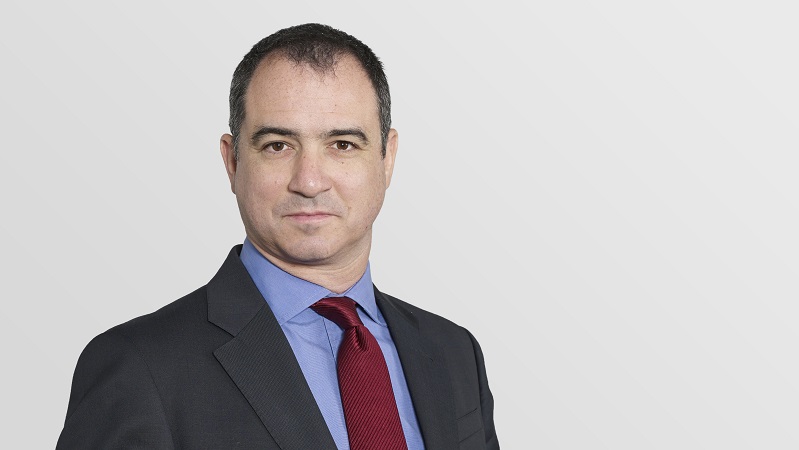The culture at Invesco that Neil Woodford reportedly detested has given DFMs some comfort that Mark Barnett’s funds will not face the same troubles as the Woodford Equity Income fund, despite some parallels in terms of positioning.
Barnett broke his silence on the comparisons being drawn between him and his predecessor this month, reiterating that his unquoted holdings represented 5% of the portfolio and emphasising the strength of the investment and compliance teams around him.
Woodford is reported to have clashed with the US executives at Invesco with a Financial Times piece, published after Woodford Investment Management announced it was shutting up shop, stating he referred to them as the “f’ing Americans”.
Hargreaves Lansdown head of research Mark Dampier told Portfolio Adviser in February that “Invesco is an American company and Neil felt a bit stifled by that”.
‘Invesco would not have allowed the portfolio to morph into what Woodford became’
Barnett had highlighted the different oversight framework he worked within at Invesco compared with Woodford Investment Management, describing it as “a global business with long-established compliance, risk and legal functions”.
Woodford would perhaps be running a portfolio very similar to his former protégé if he was still at Invesco, reckons AJ Bell head of active portfolios Ryan Hughes.
“I don’t think Invesco as a house would have allowed the portfolio to morph into what Woodford became given the strong risk and compliance culture,” Hughes says. “Those kind of internal processes and controls would have just stopped the portfolio really turning into something very different.”
GDIM manager Tom Sparke likewise thinks Invesco’s internal risk procedures would have prohibited fund managers from creating a portfolio that would resemble what Woodford Equity Income became. “But this is hard to tell,” he adds, “as we do not know the extent of risk control in the Woodford fund.”
Parallels between UK outlook and move down market-cap spectrum
But while Invesco’s infrastructure reassured intermediaries, the positioning of Invesco Income and High Income has still drawn parallels with Woodford’s portfolios.
Fundexpert managing director Brian Dennehy says Barnett “stayed too close to Woodford for too long, in every sense, and is tainted” even though he agrees Invesco’s infrastructure has been beneficial for the funds.
Hughes agrees both managers took a similar view on out-of-favour UK domestic stocks and had exposure to small-cap and unquoted stocks, but reckons the Invesco funds are more comparable to Woodford Income Focus than the flagship Equity Income fund, which is now being wound down.
The Invesco funds are much more multi-cap strategies than Woodford Equity Income, he adds.
“We’re looking at something like 65% of the portfolios invested in stocks with a market cap of more than £1bn. That’s completely different to the Woodford portfolio, which was quite clearly a portfolio of small caps and unquoteds and so should be thought of as such.”
From launch in June 2014 to its suspension in June 2019, Woodford Equity Income lost investors 1.33% compared to a 30.31% return in the FTSE All-Share, according to FE Fundinfo. Over the same period, Invesco Income returned 12.65% while High Income returned 12.54%.
Performance Mark Barnett vs Neil Woodford
| 6m | 1yr | 3yr | 5yr | |
| Invesco Income | -4.30 | -2.19 | -1.11 | 7.87 |
| Invesco High Income | -3.52 | -4.07 | -2.22 | 8.21 |
| Woodford Equity Income | -22.75 | -28.59 | -35.11 | -22.45 |
| FTSE All Share | 5.29 | 9.09 | 24.18 | 37.88 |
Source: FE Fundinfo; data sourced 14/11/2019
Sparke adds that while the funds have “some of the same biases and domestic focus”, the Barnett-run portfolios have proved less volatile. Over the last four years, the volatility figures are 9.93 for Invesco High Income and 11.42 for Woodford Equity Income, according to FE Fundinfo.
Morningstar responds to Woodford comparisons
Morningstar analyst Peter Brunt says it is important to highlight the differences between Woodford Equity Income and the Invesco funds despite the “similar direction of travel” when it came to investing in more smaller-cap companies and unquoteds.
The research house’s downgrade of Invesco Income and High Income is what prompted Barnett to go public on the positioning in his portfolio and the comparisons that were being drawn with Woodford.
Brunt says: “The group has successfully managed consistent redemptions from both the large funds for over five years, including when Barnett made the shift further down the market-cap range.
“It is also worth noting that the Invesco funds do not have any significant institutional clients and only one discretionary investor with 5% in the funds.”
Fund pickers still prefer alternative options
None of the intermediaries Portfolio Adviser spoke with championed Invesco Income or High Income among their fund picks.
“We prefer more nimble alternatives with defined styles, such as Man GLG Income, Investec UK Equity Income and Franklin Templeton UK Equity Income,” says Sparke.
Dennehy says there are “vastly better” options for investors looking for total return or income.
Fundexpert uses its Vintage Fund Ratings to examine funds that have been in the top 40% of performers 60% of the time over a 10-year period. Lindsell Train UK Equity and Liontrust Special Situations come up as better options under this analysis, he says.











